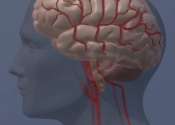Anti-psychotic medication linked to adverse change in brain structure
In a first-of-its-kind study using advanced brain imaging techniques, a commonly used anti-psychotic medication was associated with potentially adverse changes in brain structure. This study was the first in humans to evaluate ...
Feb 26, 2020
7
785








